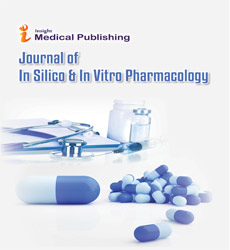Abstract
Clinical development of PfSPZ vaccine: A highly protective, well-tolerated and safe vaccine for the prevention of malaria in travelers and for the elimination of malaria from endemic areas
A “Sanaria Inc. has developed methods to manufacture, purify and cryopreserve aseptic Plasmodium falciparum (Pf) sporozoites (SPZ) and is using this platform technology to develop an injectable PfSPZ[1]based vaccine that provides high-grade, durable protection against infection with Pf malaria. Several candidate vaccines are being developed and tested, including PfSPZ vaccine, in which the PfSPZ are attenuated by irradiation, PfSPZ-CVac, in which fully infectious PfSPZ are attenuated in vivo by concomitant administration of an anti-malarial drug and PfSPZ-GA1, in which the PfSPZ are attenuated by gene knockout. 43 research groups in 15 countries, organized as the International PfSPZ Consortium (I-PfSPZ-C), are collaborating to advance this program by providing intellectual, clinical and financial support. 14 clinical trials of these products have been completed in the USA, Europe and Africa, two are underway and at least 12 more are planned for 2015-2016 in the US (four trials), Germany (2 trials), Tanzania, Kenya, Mali, Burkina Faso, Ghana and Equatorial Guinea. Sanaria anticipates application to license a first generation product as early as late 2017, initially to protect adults and a year later to protect all persons >6 months of age for at least six months. Improved vaccine candidates will be advanced as needed until the following requirements have been met: Long-term protection against natural transmission, excellent safety and tolerability and operational feasibility for population-wide administration. In my presentation, I will describe the three most developed whole PfSPZ vaccine candidates, associated clinical trials, initial plans for licensure and deployment and long-term objectives for a final product suitable for mass administration to achieve regional malaria elimination and eventual global eradication.
Author(s): Thomas Laurence Richie
Abstract | Full-Text | PDF
Share this

Google scholar citation report
Citations : 203
Journal of In Silico & In Vitro Pharmacology received 203 citations as per google scholar report
Journal of In Silico & In Vitro Pharmacology peer review process verified at publons
Abstracted/Indexed in
- Google Scholar
- China National Knowledge Infrastructure (CNKI)
- WorldCat
- Publons
- International Committee of Medical Journal Editors (ICMJE)
- Secret Search Engine Labs
Open Access Journals
- Aquaculture & Veterinary Science
- Chemistry & Chemical Sciences
- Clinical Sciences
- Engineering
- General Science
- Genetics & Molecular Biology
- Health Care & Nursing
- Immunology & Microbiology
- Materials Science
- Mathematics & Physics
- Medical Sciences
- Neurology & Psychiatry
- Oncology & Cancer Science
- Pharmaceutical Sciences

